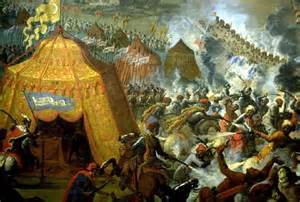 E
Early in his career,
Eugene of Savoy, under the command of
Polish King Jan Sobieski, helped defeat 200,000 Muslim Turks on
September 11, 1683, thus saving the city of
Vienna, Austria.
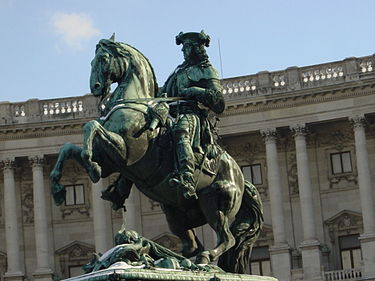
Austrian Prince Eugene of Savoy went on to become one of Europe's most famous commanders.
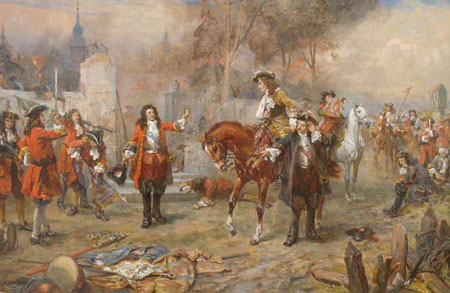
Savoy helped drive the Turks from
Budapest in 1686.
In 1687, he gallantly commanded a cavalry brigade defeating the Turks at the
Second Battle of Mohács in Hungary.
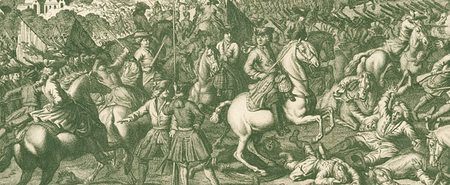
This victory was so significant that the Ottoman army mutinied,
Grand Vizier Sarı Süleyman Pasha was executed, and
Sultan Mehmed IV was deposed.
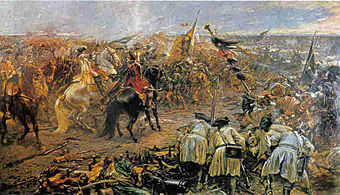 Prince Eugene of Savoy
Prince Eugene of Savoy was most renown for
his victory over 100.000 Muslim Ottoman Turks at the
Battle of Zenta, Serbia,
September 11, 1697.
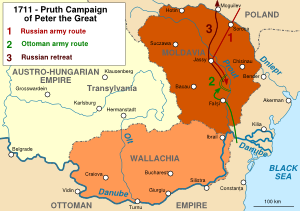
Then
Turks invaded Russia.
The new Turkish Grand Vizier, Baltacı Mehmet, defeated Peter the Great's Russian Army in the
Russo-Turkish War (1710-1711).
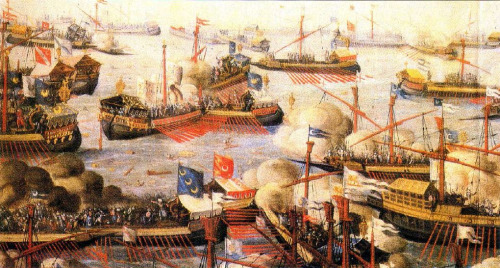 Turks
Turks then invaded
Greece and Venetian territories, led by Turkish Grand Vizier Damat Ali in the
Turkish-Venetian War (1714-1718).
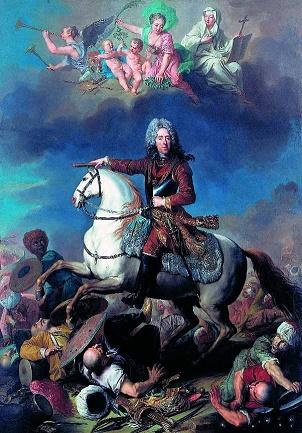
Once again, to Europe's rescue came
Austrian Prince Eugene of Savoy in the
Austro-Turkish War 1716-1718.
In 1716,
Savoy defeated the Turks at
Petrovaradin, captured the
Banat (areas of
Romania, Serbia and
Hungary) and the capital city of
Timisoara.
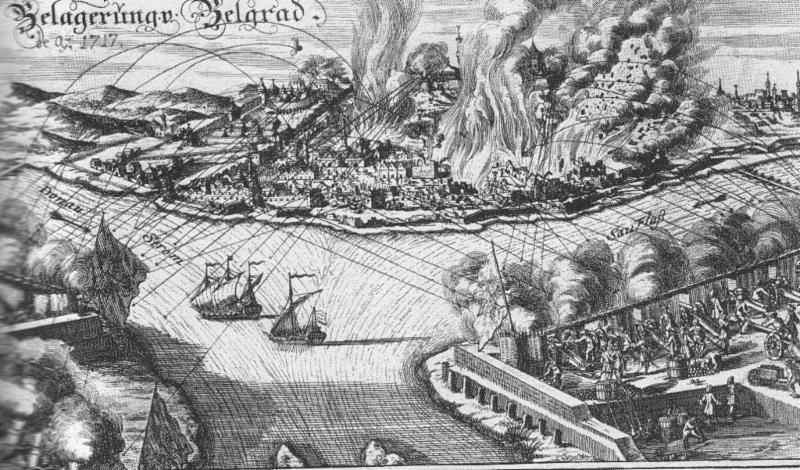
In 1717,
Savoy recaptured
Belgrade, Serbia, whose Christian population had been brutally crushed and enslaved by numerous Muslim campaigns dating back to 1521.
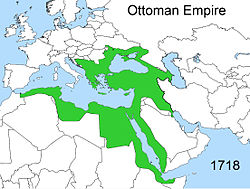 Savoy's
Savoy's successful halt of the
Ottoman invasion into Europe resulted in Turks suing for peace in 1718 with the
Treaty of Passarowitz, as the Islamic practice was,
when you are strong fight without mercy, but when you are weak make treaties till you can become strong.
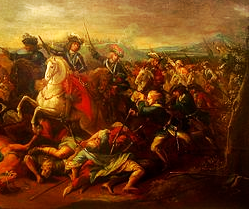
One of the soldiers fighting at the
Battle of Belgrade was 17-year-old Englishman
James Oglethorpe, who served as
Prince Savoy's aide-de-camp.
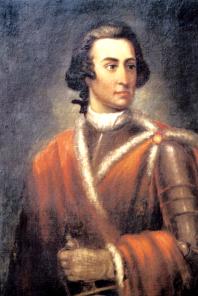
After fighting with distinction in the Austro-Turkish War,
Oglethorpe, at the age of 21, returned to England. He unintentionally killed a man in a brawl and spent five months in prison.
Upon release,
James followed in the footsteps of his father, Sir Theophilus Oglethorpe, and became
a member of Parliament, where he served for 32 years, 1722-1754.
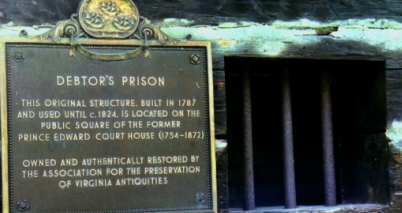
In Parliament, he became known for opposing slavery.
In 1728, one of James Oglethorpe's friends, Robert Castell, was unable to pay his debts and was thrown into London's notorious
Fleet Debtor's Prison.
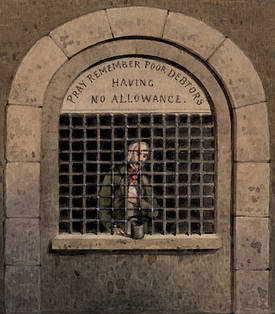
At the time, in English prisons, prisoners had to pay the guards to get food and a decent room. As Castell was unable to pay, he was put in a cell with someone dying of smallpox.
Castell caught the disease and died too.
Shocked at the news, James Oglethorpe began a national campaign for prison reform, heading a parliamentary committee to investigate them.
Steps were made to end the extortion and abuse of prisoners, and improve sanitary conditions.
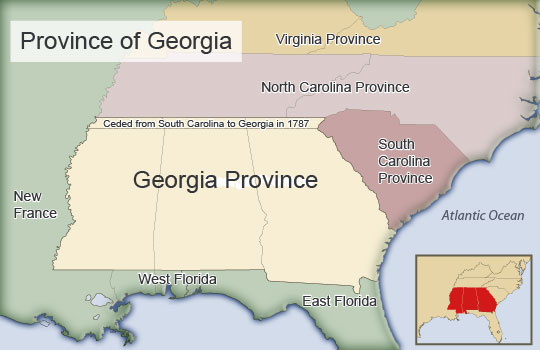 James Oglethorpe
James Oglethorpe conceived of an idea for a colony in America where poor debtors and religious refugees could get a second chance.
He named the colony "
Georgia" after Britain's
King George II.
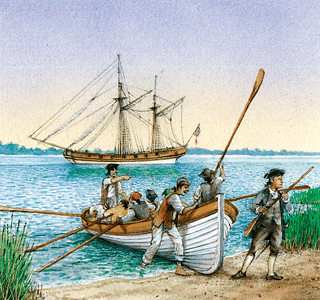 Georgia's Colonial Charter
Georgia's Colonial Charter, 1732, stated regarding religious freedom:
"There shall be a liberty of conscience allowed in the worship of
God ...
and that all such persons, except papists, shall have a free exercise of their religion."
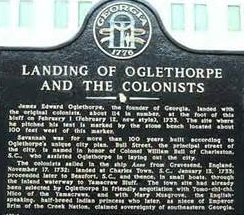
Sailing on the ship
Ann, the 115 settlers landed on JANUARY 13, 1733.
A year later,
Protestant refugees from Salzburg, Austria, called "Salzburgers," settled the town of Ebenezer, Georgia.
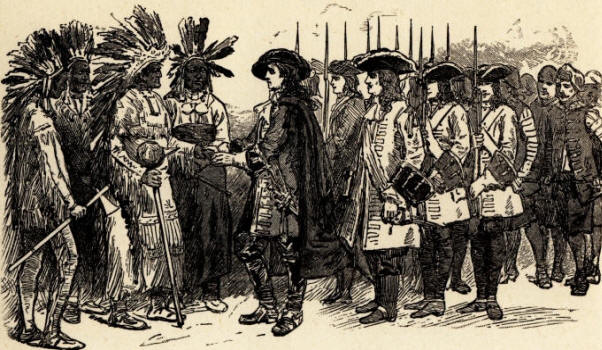
In 1735,
Moravian immigrants from Bohemia arrived through Fort Argyle.
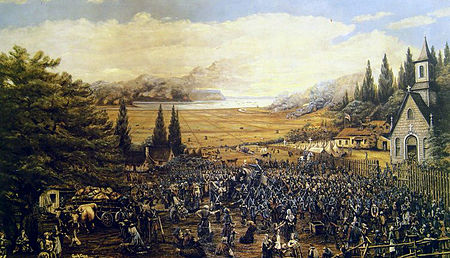
Scottish Presbyterians arrived from New Inverness in 1736.
Huguenot Protestant refugees had arrived from France.
 James Oglethorpe's secretary was Charles Wesley
James Oglethorpe's secretary was Charles Wesley, who later became a hymn writer, composing among others, the carol "Hark, the Herald Angel Sings."
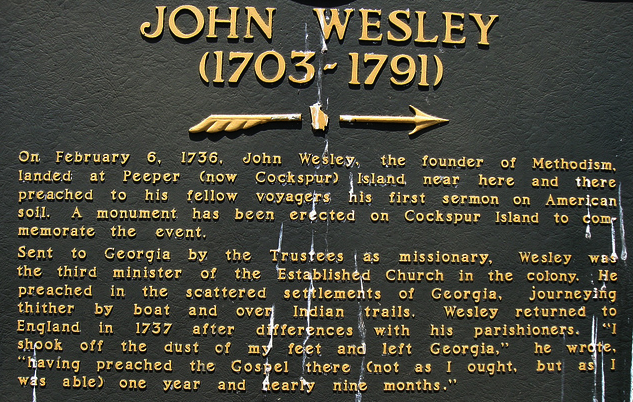
Charles Wesley's brother,
John Wesley, served in 1735 as the Georgia's Anglican minister. He later began the Methodist movement.
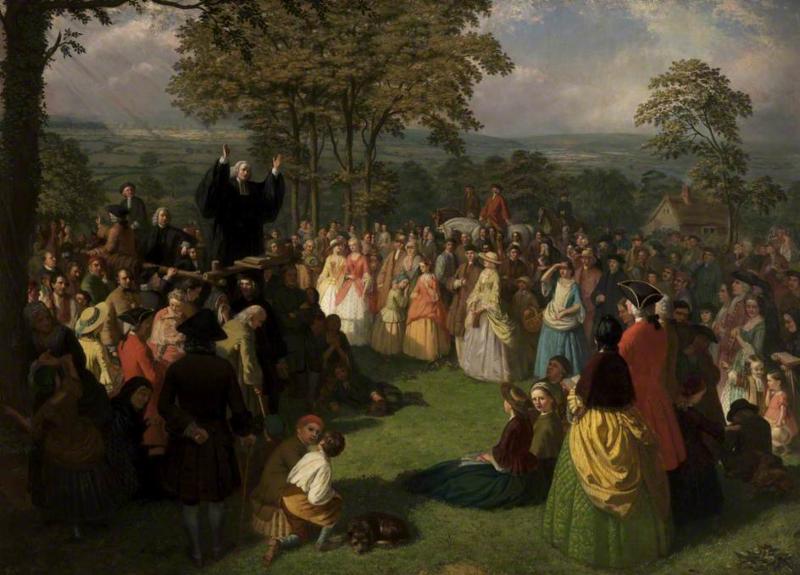
The Wesleys' friend,
Rev. George Whitefield, preached to enthusiastic crowds in Georgia in 1738, and later started an orphanage there.
Get the book THE ORIGINAL 13-A Documentary History of Religion in America's First Thirteen States
On July 11, 1733,
34 Portuguese Sephardic Jews and 8 German Ashkenazic Jews, arrived in
Savannah, Georgia. This was the largest group of Jews to land in North America prior to the Revolutionary War.
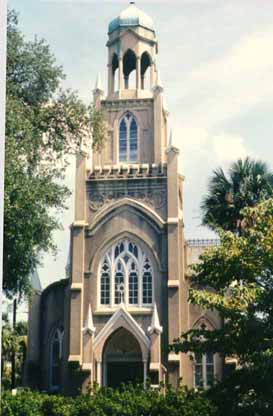
They began the Holy Congregation Hope of Israel-"Kahal Kodesh Mickve Israel,"
the third oldest Jewish congregation in the United States.
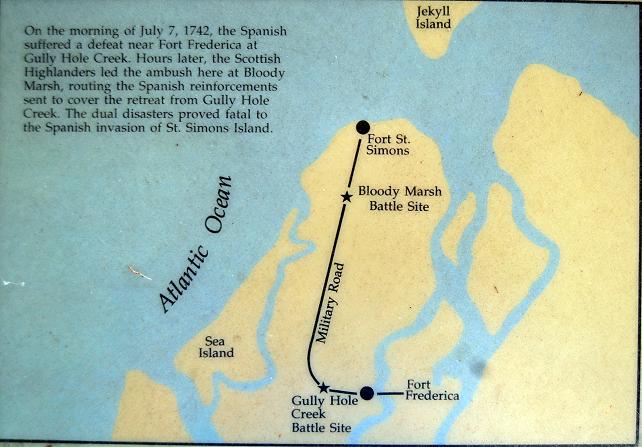
In 1742, during the
War of Jenkin's Ear, some
3,000 Spanish soldiers landed on Georgia's St. Simon's Island.
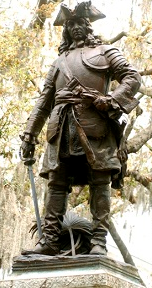
Oglethorpe repelled them in the
Battle of Bloody Marsh, July 7, 1742.
The next year, Oglethorpe returned to England where he served in the military.
In 1758, Georgia's Royal Governor Henry Ellis issued an Act regarding religion:
"Establishing Religious Worship therein,
according to the Rites and Ceremonies of the Church of England; and also for empowering the Church Wardens and Vestrymen of the respective Parishes ... for the repair of churches, the relief of the poor, and other Parochial service."
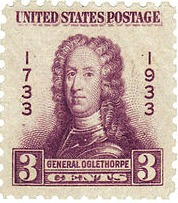 This Act established the Anglican Church as the Colony of Georgia's official denomination,
This Act established the Anglican Church as the Colony of Georgia's official denomination, with a £25 per annum salary for every Anglican clergyman.
Catholics were specifically excluded from the colony.
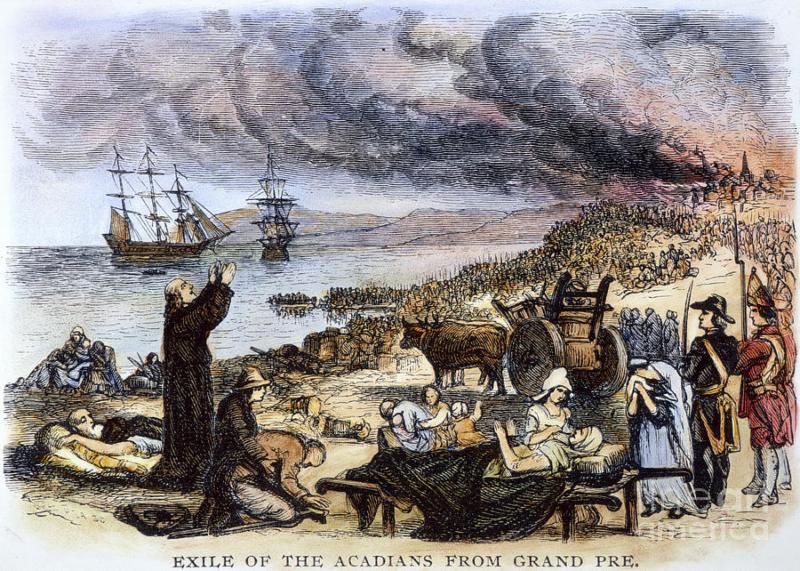
Beginning in 1755, Britain expelled all French Catholics from Acadia, Canada
.
Some 400 French Catholics arrived in Savannah, Georgia.
They were only allowed to stay the winter before being ordered to leave.
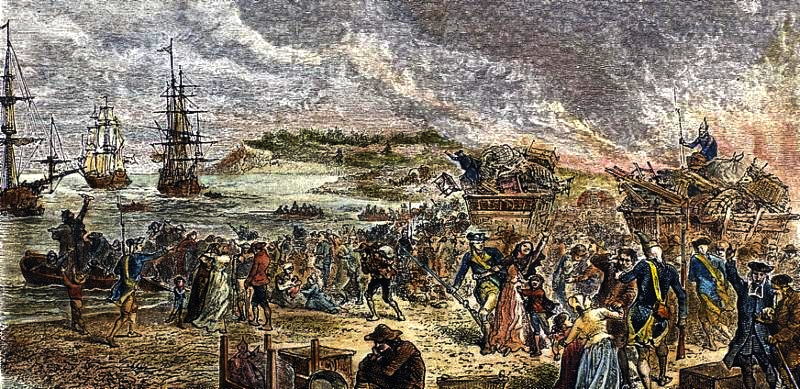
Some expelled Acadians traveled to South Carolina, others to St. Dominique Island, and still others to the French Catholic Louisiana Territory, where the pronunciation of
"Acadian" evolved to "Cajun."
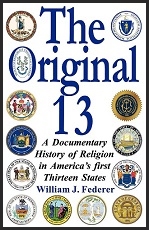 THE ORIGINAL 13-A Documentary History of Religion in America's First Thirteen States
THE ORIGINAL 13-A Documentary History of Religion in America's First Thirteen States
Other Protestants arrived in Georgia.
In 1772, Daniel Marshall established the
first Baptist Church in Georgia.
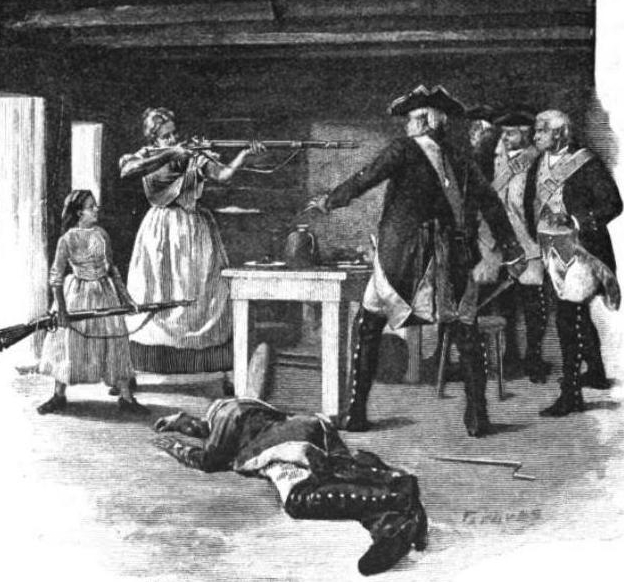
Georgia had many Revolutionary War heroes, such as
Nancy Hart.
While her husband was away, six British soldiers converged on their frontier home.
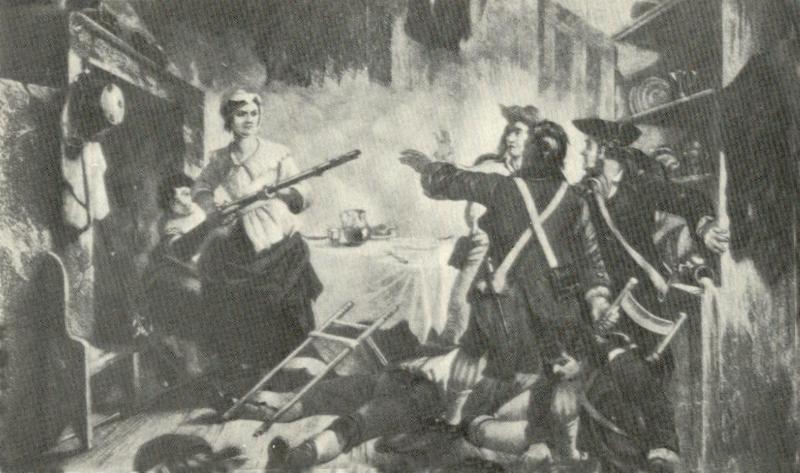
Soldiers shot her prize gobbler and ordered her to cook it.
After feeding and serving them lots of wine Nancy grabbed one of their guns, promising to shoot the first one that moved.
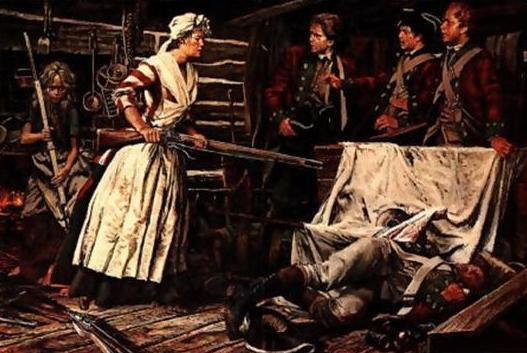
After shooting two, her husband showed up and they hung the rest.
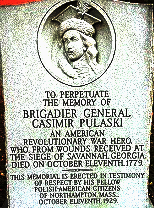
Georgia is also known for
Polish General Casmir Pulaski, who died fighting the British at Savannah.
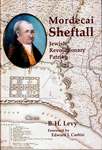
Mordecai Sheftall of Georgia became the Continental Army's highest ranking Jewish officer.
In 1777, Georgia passed its
first State Constitution, stating:
"We the people of
Georgia, relying upon the protection and guidance of
Almighty God, do ordain and establish this Constitution."
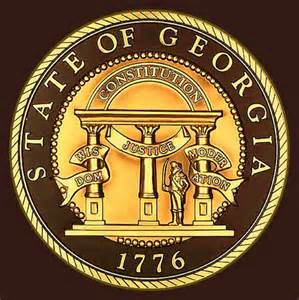 Georgia's Constitution
Georgia's Constitution, 1777, Article 6 stated:
"Representatives shall be chosen out of the residents in each county ... and they shall be of
the Protestant religion."
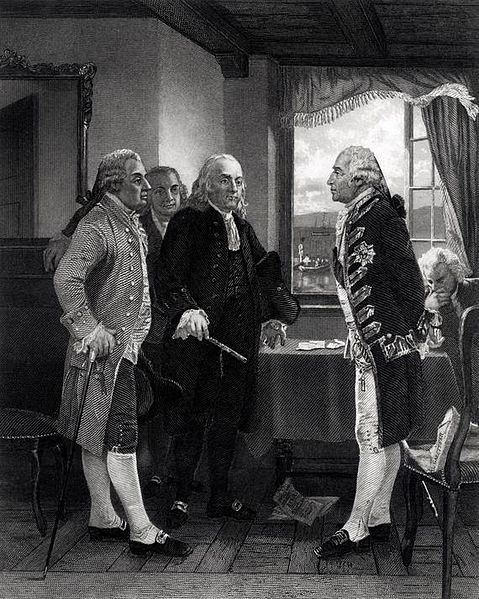
In 1785,
John Adams was sent as the first U.S. Ambassador to Britain. While there, he visited with
James Oglethorpe just months before his death.
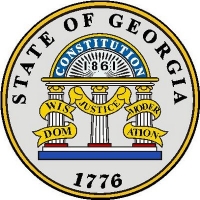
In 1788, Georgia was the 4th State to ratify the U.S. Constitution.
In 1789, Georgia's population was over 82,000 and the State adopted
a second Constitution which removed the Protestant requirement, simply stating:
"All persons shall have the free exercise of religion."
A third Georgia Constitution was adopted in 1798, establishing religious toleration.
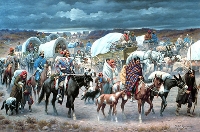
In the first 34 years of Georgia's statehood, conflicts arose between settlers and Indians, especially when gold was discovered on Cherokee land in 1829, causing the Georgia Gold Rush.
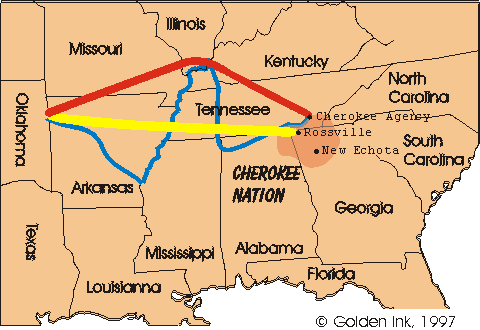
An
Indian Removal Act was hurriedly rushed through a Democrat controlled Congress in 1830.
This resulted in the tragic
"Trail of Tears" where over 4,000 Indian men, women, and children died in the bitter winter of 1838 as the Federal Government forcibly
marched them from Georgia and southeastern United States to the Oklahoma Territory.
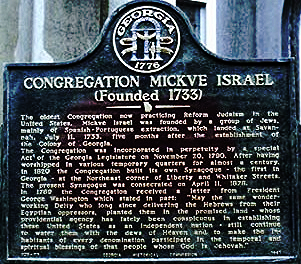
Georgia's religious history included the
Jewsish Mickve Israel Congregation, which in 1786 had an attendance of 73.
In 1790, Georgia's Governor granted the Jewish congregation a State Charter.
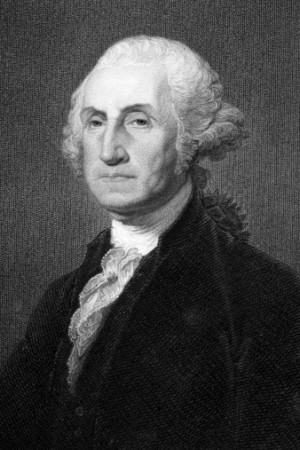
President Washington wrote to them:
"May the same wonder-working Deity, who long since delivered the Hebrews from their Egyptian oppressors, planted them in the promised land,
whose Providential Agency has lately been conspicuous in establishing these United States as an independent nation,
still continue to water them with the dews of Heaven, and make the inhabitants of every denomination partake in the temporal and spiritual blessings of that people, whose God is Jehovah."
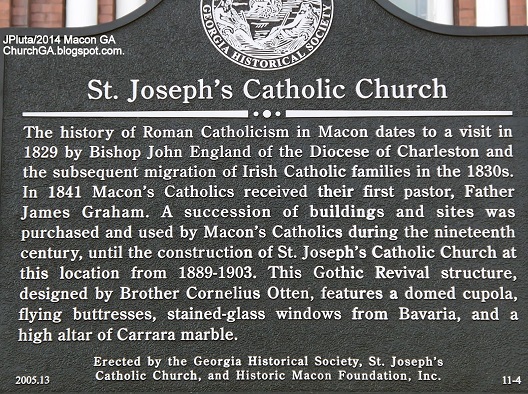
The first Catholic residents moved into Georgia from Maryland around 1793.
They had no priest until the French Revolution sparked a slave revolt on the Island of St. Dominique/Haiti causing a few priests to flee to Georgia.
In 1810, the State Legislature incorporated the Catholic Church of Augusta.
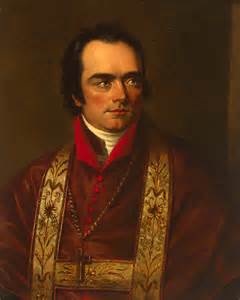
In 1820, Irish Bishop John England was appointed over the State's one hundred Catholics in Savannah, plus a few more in Augusta.
Bishop John England founded America's first Catholic newspaper,
The United States Catholic Miscellany.
Bishop John England delivered the first Catholic Sermon in the U.S. Capital at the Sunday morning Church service held in the House of Representatives, January 8, 1826.
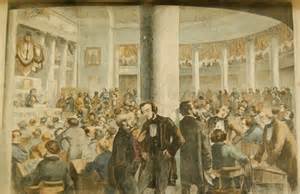
The overflow audience included President John Quincy Adams, who had previously stated, July 4, 1821, that Catholicism and Republicanism were incompatible.
Bishop John England reassured the predominately Protestant audience:
"We do not believe that God gave to the Church any power to interfere with our civil rights, or our civil concerns ... I would not allow to the Pope, or to any bishop of our Church ... the smallest interference with the humblest vote at our most insignificant balloting box."
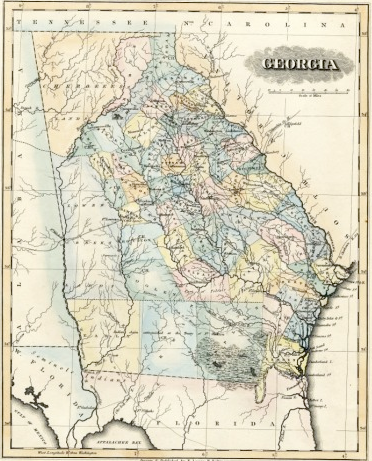
By 1839, Bishop John England listed 11 priests in Georgia.
The population of Georgia in 1830 was 516,823.
In 1836, Methodists founded Emory College at Oxford and Wesleyan Female College at Macon -- the first institution of learning founded specifically for women in America.
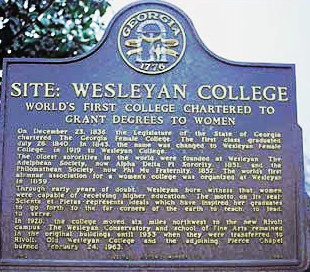
Georgia supported the State's Right doctrine before the outbreak of the War Between the States, and when Lincoln was elected, politicians moved for secession from the Union.
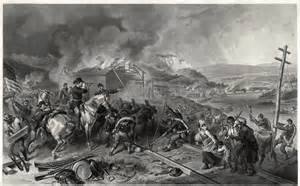
Georgia was devastated as the Civil War progressed, especially in the fall of Atlanta and General Sherman's march to the sea.

In 1865, Atlanta University was founded by the Protestant American Missionary Association to help freed slaves, as was Clark University, founded in 1869 by the Methodist Episcopal Church.
The population of Georgia in 1870 was 1,184,109.
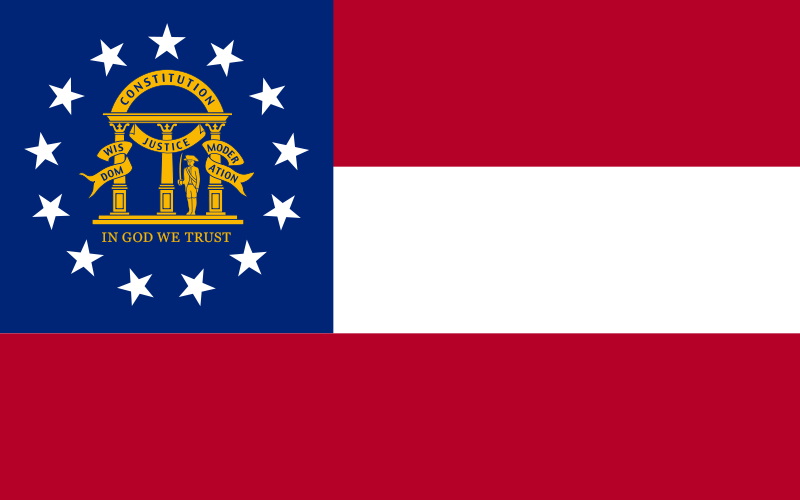
In 1877, Georgia's Constitution stated:
"Relying upon the protection and guidance of Almighty God ...
All men have the natural and inalienable right to worship God, each according to the dictates of his own conscience."
In 1877, Baptists founded Shorter College at Rome, and in 1881, Methodists founded Morris Brown College.
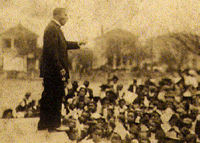
In 1895, history was made at the International Exposition in Atlanta when the Black President of the Tuskegee Institute, Booker T. Washington, was invited to give a keynote address.
In 1900, the population of Georgia was 2,216,331.
As of 1910, the State of Georgia gave full liberty of conscience in matters of religious opinion and worship, but did not legalize willful or profane scoffing. It was unlawful to conduct any secular business on Sunday.
Georgia's oath of office was administered with one hand upon the Bible and the other uplifted, with the affirmation:
"You do solemnly swear in the presence of the ever living God" or "You do sincerely and truly affirm, etc."
Legislative sessions opened with prayer.

The U.S. Religious Landscape Survey, conducted by The Pew Forum on Religion & Public Life, 2007, published in the USA Today, listed Georgia as:
83 percent Christian, consisting of:
-Evangelical Protestant - 38 percent
-Mainline Protestant - 16 percent
-Black Protestant - 16 percent
-Catholic - 12 percent
-Orthodox - <0.5 percent
-Other Christian - <0.5 percent
1 percent - Jewish
<0.5 percent - Mormon
<0.5 percent - Jehovah's Witnesses
<0.5 percent - Muslim
<0.5 percent - Buddhist
<0.5 percent - Hindu
<0.5 percent - Other World Religions
<0.5 percent - Other Faiths
<0.5 percent - Did not answer
12 percent - Unaffiliated
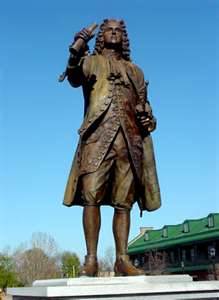
When
James Oglethorpe and the first settlers touched Georgia's shore, JANUARY 13, 1733, they knelt while Rev. Herbert Henry offered prayer. They declared:
"Our end in leaving our native country is not to gain riches and honor, but singly this: to live wholly to the glory of God."
Their object was:
"To make Georgia a religious colony."
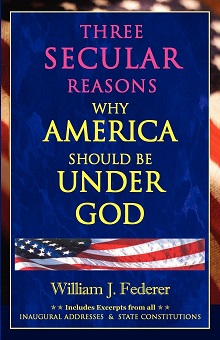 Three SECULAR Reasons Why America Should be Under God
Search AMERICAN MINUTE archives
Three SECULAR Reasons Why America Should be Under God
Search AMERICAN MINUTE archives